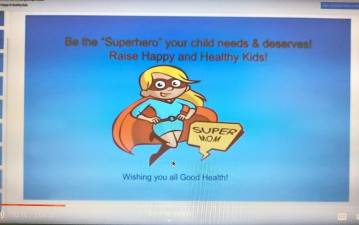Students’ body-mass data collected from schools throughout Sussex County
Student health. The YMCA told the Sussex County Child Health Crisis Work Group that it has received BMI data from 31 schools, each to receive its own confidential report.

Sussex County will be starting another health needs assessment for students.
Alma Dhuyvetter, the wellness director at the Sussex County YMCA, told the Sussex County Child Health Crisis Work Group at its Sept. 22 meeting that she received BMI (body mass index) data for students from 31 schools out of 36 Sussex County schools for the 2020-21 school year.
The data will be calculated and updated at the next work group meeting in October or November. The schools will each receive their own confidential report.
According to the U.S. Centers for Disease Control, a BMI is a person’s weight in kilograms divided by the square of height in meters. “A high BMI can indicate high body fatness,” says the CDC.
BMI screens for weight categories that may lead to health problems, but it does not diagnose the body fatness or health of an individual.”
Shorter webinars better for parents
The webinar “Raising Happy & Healthy Kids” was shown to preschool parents served by Norwescap Child and Family Resource Services.
Some of the 74 viewers thought the webinar was too long. Deb Fisher, R.N., the head of the work group, contacted Corey Brown, the executive director at the Sussex County YMCA, and asked if the webinars could be separated into sections for easier viewing.
“This will take time, but once the webinars are separated into clips, viewers can watch one clip at a time as they would like to,” Fisher said. The webinar can be viewed on YouTube.
Maureen Cianci, R.N., works for the Sussex County Division of Health and heads up the county’s Chronic Health Coalition. Cianci said she inquire whether participants in Newton Medical Center’s prenatal classes would be interested in viewing the webinar.
Diana Blakely, quality improvement specialist for Norwescap, said, its vision is to “help build a community that transforms poverty into opportunity, and our work positively impacts over 30,000 people each year.” The organization serves individuals and families with moderate to lower incomes by generating opportunities.
“Throughout northwestern New Jersey, we provide a comprehensive array of life-sustaining strategies and programs that fall into six domains,” she said, which include “education, employment, financial empowerment, health and nutrition, housing and community development, volunteerism and civic engagement.”
Norwescap advocates instilling healthy habits in early childhood settings, and supports the work group by sending resources and educational materials to local schools and families.
New liaison group
The work group created a liaison group consisting of 11 nurses, each assigned to create a Wellness Committee in one or two school districts. The liaison group is focusing on all preschools, grammar schools, middle schools, and high schools fin the county.
Fisher said the purpose of the liaison group is “to get the schools that have Wellness Programs to share those health strategies with other schools that are starting their Wellness Programs.”

